Need Help? Contact Us Trade Customer? Register / Login
Choosing the Right Front Door Lock
The security of your home begins at the front door, so choosing the right lock is crucial. With various types of locks available on the market, selecting the best one for your needs, can be daunting.
G Johns and Sons will explain the different types of locks and any important considerations and provide tips to help you make an informed decision about top-notch front door security.
Understanding Door Locks: Types and Features
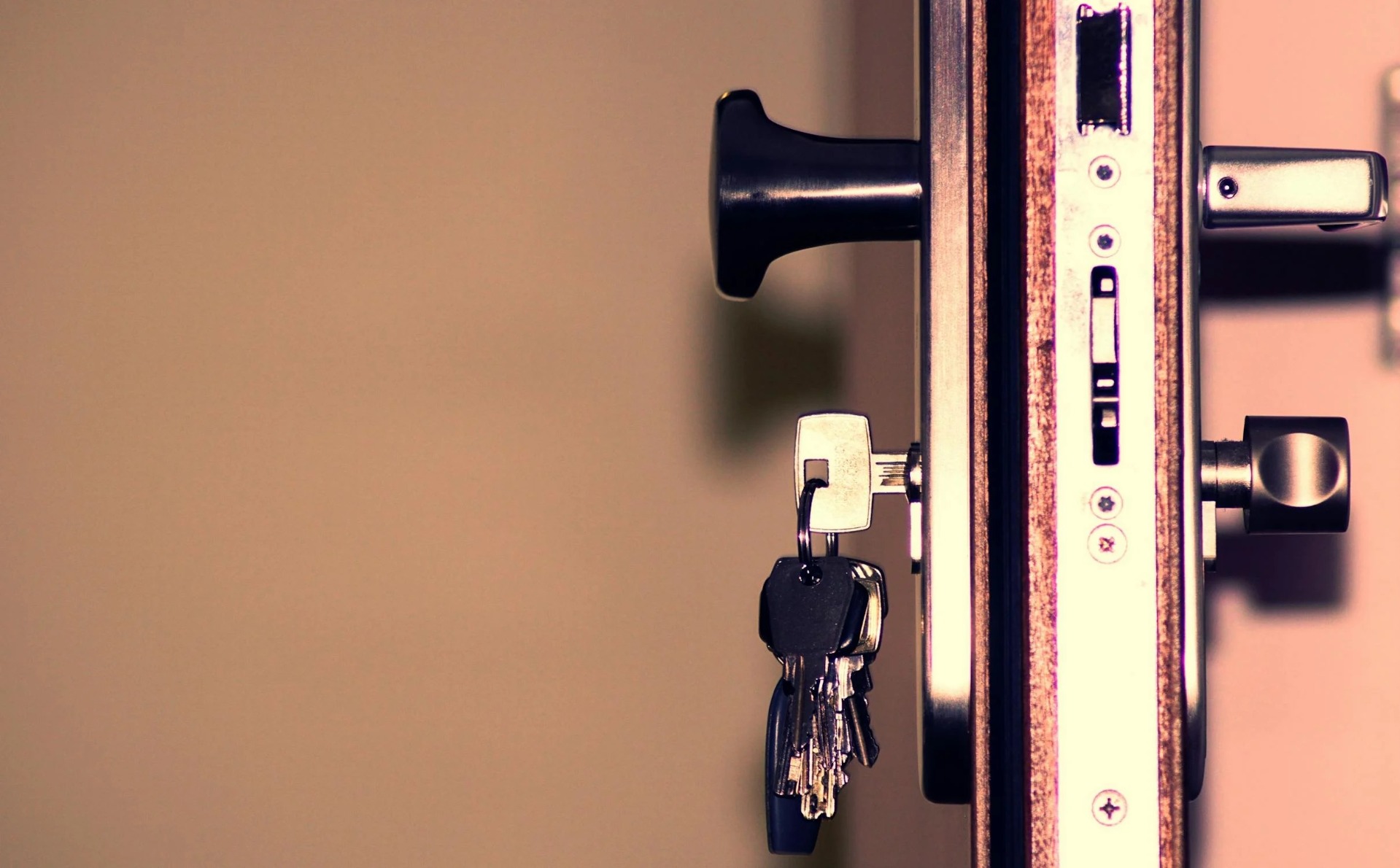
Front Door Lock Kits
We stock front door lock kits, which include everything you need to install the lock on your door. They are available in a range of finishes, including polished chrome, brass, and bronze.
Choose from a high-quality range of deadlocks, sash locks and locks with a Euro profile cylinder with a thumb turn on the inside of the door to allow for easy locking and unlocking.
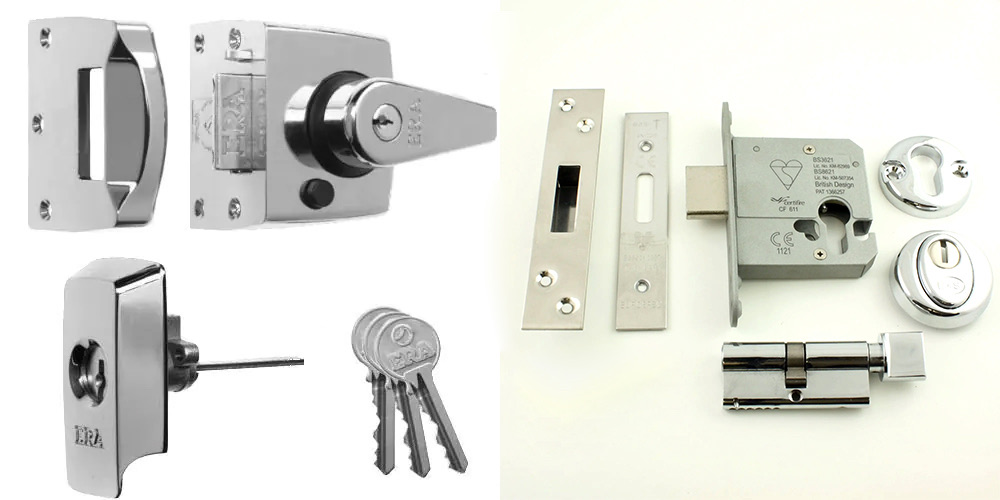
Dead Locks
A deadlock is a key-operated bolt that doesn’t have a latch to operate the door handle. Turning the key or thumb turn will lock the door.
Deadlocks fitted to front doors should be tested to BS3621 or BS8621 to meet insurance requirements.
If you’re planning to install a deadlock on the front door of your apartment or flat, it will need to be CE Marked, fire-rated, and fitted with an internal thumb turn to meet escape requirements.
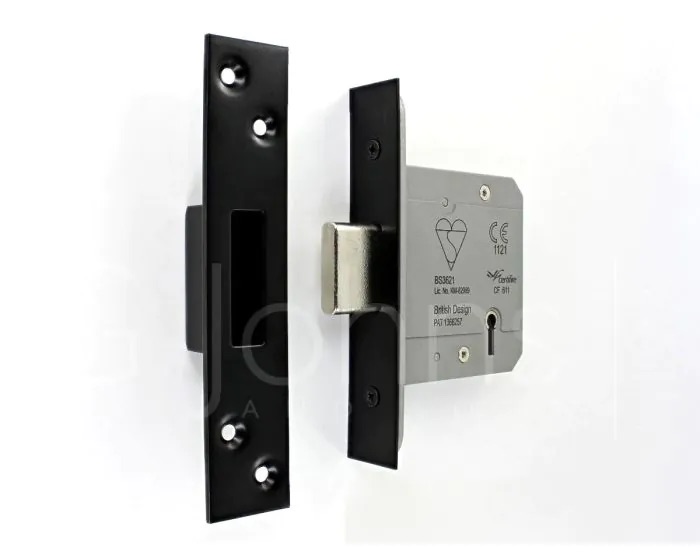
Lever Sash Locks
Sash locks have a latch mechanism built into the lock case and are designed to be used with a pair of door handles.
Lever handle locks are commonly used on back doors and side doors to properties. These locks only latch the door closed, ideal if you’re popping in and out of the garden. The door can be locked via a traditional “Chubb” style key.
Our range of 5-lever BS3621-rated sash locks are backed by a police initiative, ‘Secured by Design’ (SBD). Locks with this accreditation have been tested to withstand common attack methods and were introduced to improve the security of buildings and their immediate surroundings.
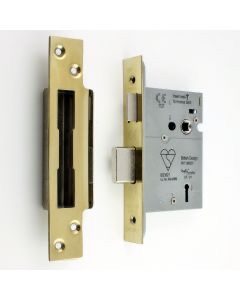
Night Latches
Commonly known as Yale locks, night latches are used to secure, lock and open external front doors.
From the outside of the front door, when a key is inserted and turned into the rim cylinder or barrel, the door opens. From the inside, when a small handle is turned, the door pulls open.
We offer high-security locks, which allow the door to be double-locked from the inside for extra security. These locks have cylinder protection and anti-thrust latch bolts and are tested to the latest British Standard BS 3621, making them ideal for meeting insurance company requirements.
We stock a range of roller bolt night latches and escape locks tested which are fire rated. For apartment entrance doors we recommend our mortice night latch kit, which helps comply with the latest building and fire regulations.
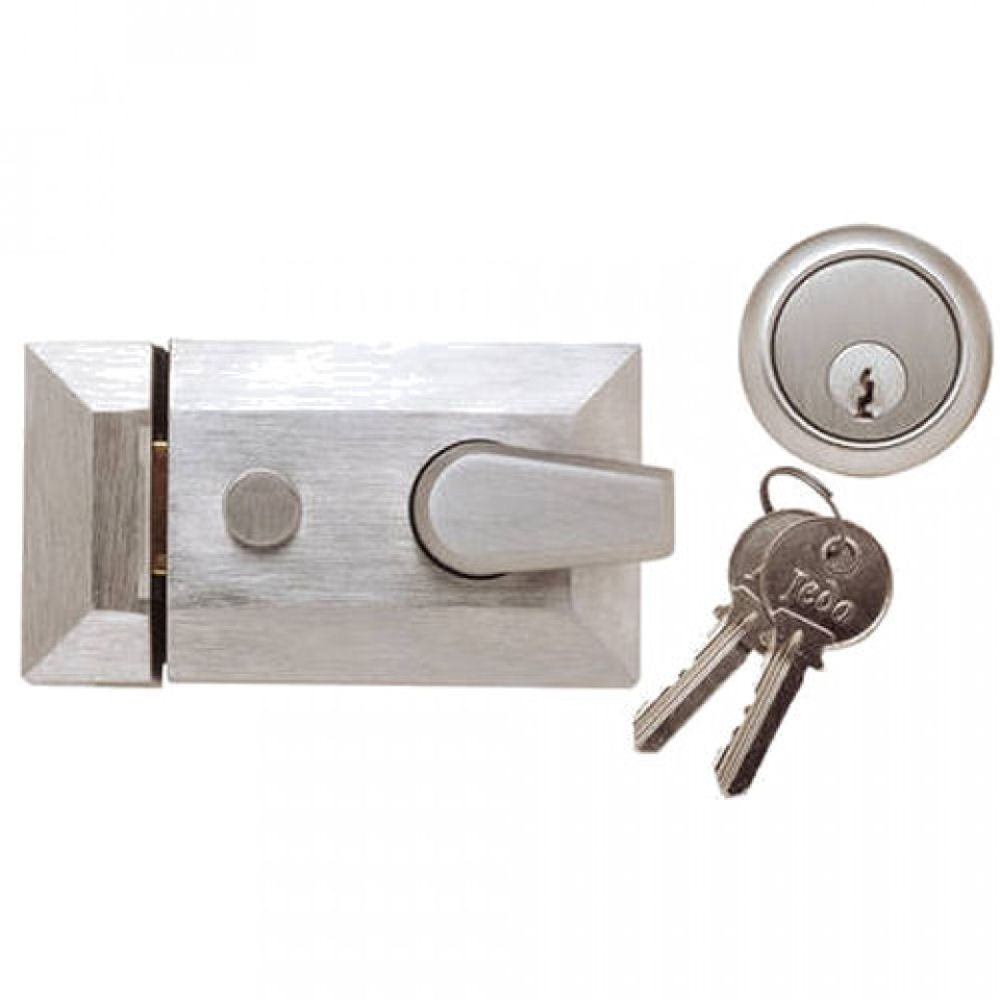
Keyless Entry Systems
Digital Smart Locks are gaining popularity as keyless entry systems provide more security and convenience by eliminating the need for keys. They are ideal for people who frequently lose keys or want to offer access to multiple people without distributing keys.
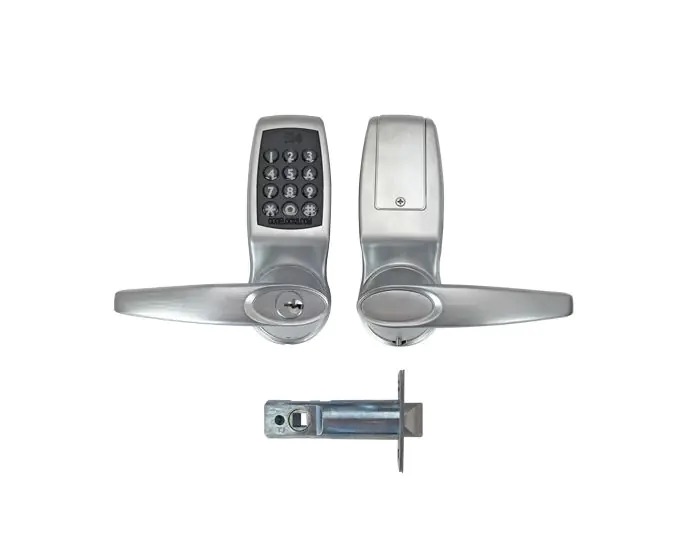
Factors to Consider When Choosing a Lock
Security Needs
Assessing your security needs is the first step in choosing a lock. Consider the crime rates in your area and the level of security you require. For high-crime areas, opting for a lock with advanced security features is advisable.
Accreditations
Kitemarks
BSI British Kitemarks (British Standard Institution) are a recognised symbol of quality and security. Our 5-lever locks are tested to the British Standard BS 3621 and BS 8621. These security locks are suitable for all external doors (front doors, back doors and even French doors). They are insurance-rated (the minimum standard insurance companies expect you to have).
Fire Rated Accreditation
Many of our front door locks are CE marked, which means the product meets the minimum legal requirements to be legally placed on the market in any European member state. CE marking does look at a product's safety, reliability, and quality, this is a legal requirement for mortice locks fitted to fire doors.
We are proud to offer several front door locks that are Certifire Approved. Certifire is a third-party fire product certification scheme that assures customers of the performance, quality, reliability, and traceability of products and systems. It is recognised by regulatory authorities worldwide as an international mark of fire safety across a diverse range of passive fire products.
Locks that are CE marked and BS-rated to 8621 are suitable for front doors to flats in multi-occupancy buildings, complying with the latest fire regulations.
Door Material and Structure
Another thing you should consider is compatibility. Our locks are compatible with 44mm thick timber doors, however please check the technical specifications to ensure that the lock is suitable for your door, considering the door’s material and thickness.
Budget Considerations
Locks are available at various prices, from budget-friendly options to high-end security systems. But when setting your budget, consider the cost of the lock, as well as installation, maintenance, and even the price of extra keys that may need to be cut.
Appearance
Locks come in various designs and finishes to match your home's decor. There are options to suit every style, whether you prefer a classic brass finish or a modern stainless steel look.
Ease of Use
Consider the lock's ease of use for all family members. Features like lever handles or smart locks can be more user-friendly.
Professional vs. DIY Installation
Hiring a professional locksmith ensures the lock is fitted correctly and functions optimally, which is particularly important for complex locks like mortice or smart locks.
If you choose to install the lock yourself, ensure you have the necessary tools and skills. Follow the manufacturer's instructions carefully and avoid common mistakes such as misalignment or improper fitting.
Maintenance and Longevity of Door Locks
Regular maintenance is essential for longevity and functionality. Clean the lock regularly, lubricate moving parts, and inspect for signs of wear and tear.
As a precaution, it's recommended that you replace your front door lock every 7-10 years or if it shows signs of wear, has been compromised, or if you lose your keys.
Common Mistakes to Avoid
- Style over Security – While aesthetics are important, never compromise security for style. Prioritise locks with proven security features, even if they are not the most visually appealing.
- Compatibility Issues – Ensure the lock is compatible with your door type and frame. Incompatible locks may not provide the security you need and can damage your door.
- Overlooking Additional Security Measures – Locks are just one aspect of home security. Consider additional measures like reinforcing door frames, installing security cameras, using security bars and adding hinge bolts for added protection.
Choose the Right Door Lock
Choosing the right lock for your front door involves considering various factors such as security needs, door compatibility, budget, and personal preferences.
By understanding the different types of locks and evaluating their features, you can make an informed decision that enhances your home's security.
Remember to maintain your lock regularly and consider additional security measures to protect your property further.
Visit our showroom for a wide range of products and services to meet your needs, whether you’re inspired by historical ironwork or seeking contemporary designs made with passion and have an everlasting legacy of iron craftsmanship.
Can't make it in person? Shop our extensive collection of Door Handles, Sliding Door Mechanisms, and Front Door Fittings online.
Discover more from G Johns & Sons with our blog. Learn about the history of ironmongery, how ironmongery fittings can upgrade your kitchen, even when you’re on a budget, and how to stop your doors from sticking.
